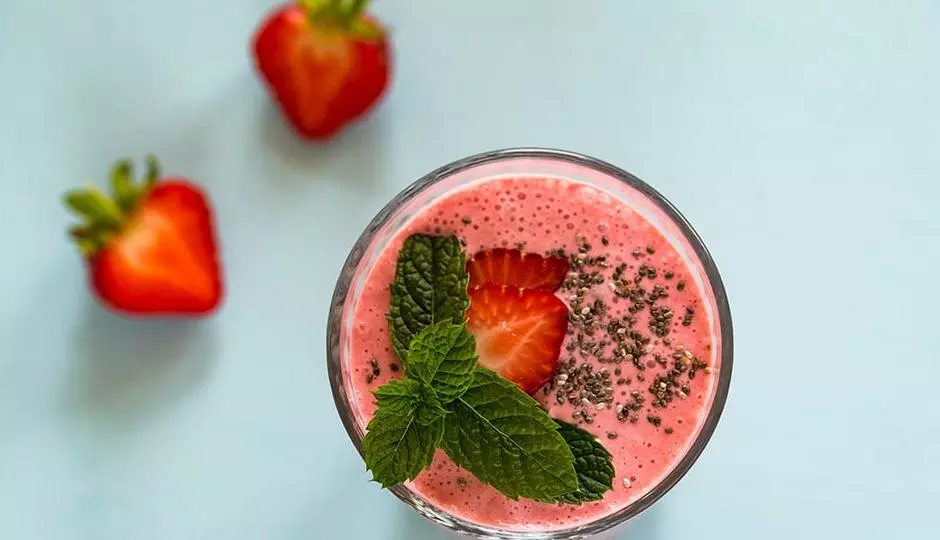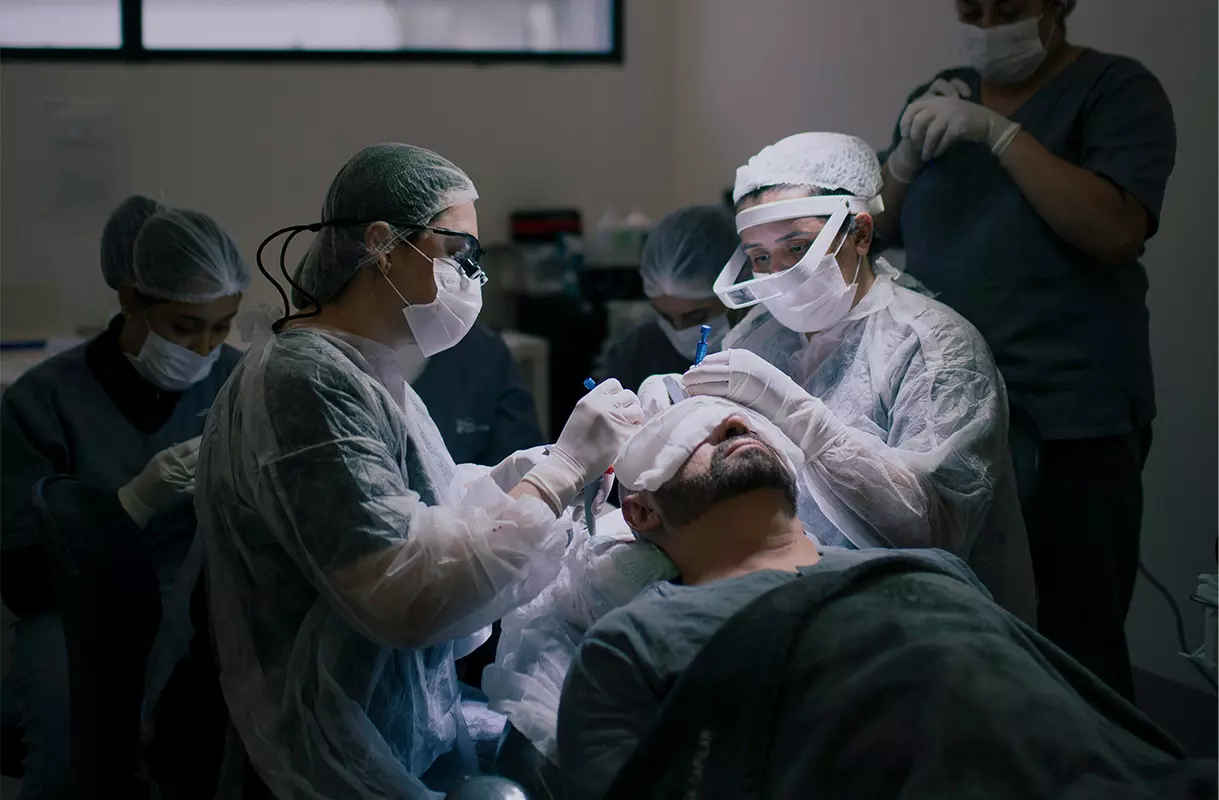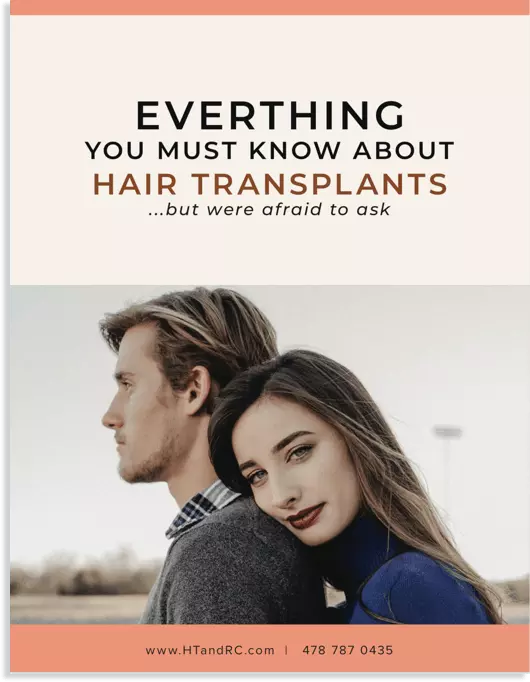Hair follicles cells are some of the fastest growing cells in your body (making them especially susceptible to chemotherapy drugs which act on rapidly dividing tumor cells), and it is because the cell division is so rapid that the hair follicle cells specifically need an abundant nutritional supply. Consequently, if the nutrient supply is not present in your body, then hair follicles may show some of the first signs of these deficiencies.
Below are some specific deficiencies and/or factors that affect hair growth:
Malnutrition and Weight Loss Diets
- Very high on the list of deficiencies
- Diets intended for weight loss can lead to hair loss if the caloric intake is less than 1000kcal per day and if the protein intake is insufficient.
- Hair growth can be affected by anyone on a crash diet, but especially in young obese women.
- The hair loss can be even more profound in diets which produce a negative nitrogen balance.
- Because protein is the primary constituent of hair fibers, reduced protein intake can impair hair growth. This can happen even in the face of a normal serum albumin level.
- For adults, some general situations that result in low protein intake include GI disease, blood loss, anorexia nervosa, depression, drug addiction or malignancy.
Biotin
- Has a “front and center” roll in over-the-counter hair treatments.
- A crucial cofactor of carboxylases in the mitochondria, but true deficiency is rare.
- However, a deficiency can be seen in the face of parenteral alimentation, impaired GI flora caused by antibiotics, and after excessive ingestion of egg whites.
- Symptoms of biotin deficiency can include structural changes of the hair and nails.
- Alopecia is not a typical symptom of biotin deficiency, but structural irregularities like trichorrhexis nodosa can occur. Trichorrhexis nodosa is a defect in the hair shaft characterized by thickening or weak points (nodes) that cause the hair to break off easily.
- It is not sufficiently shown that additional supplementation of biotin in patients with normal blood levels can improve hair loss, but it is possible to have a positive effect on the structure of hair and nails.
Iron
- One of the most common nutritional deficiencies around the world.
- There can be a variety of symptoms of iron deficiency, but as far as hair goes, it can present as diffuse hair loss.
- In the workup for hair loss, we look at iron stores as they can be seen in a ferritin level.
- A sufficient intake of red meat is important although other heme iron sources include clams and fish.
- Non-heme iron sources include beans, peas, and cereals and should be eaten together with sources of vitamin C.
- Most researchers require a ferritin level of at least 40 mg/L although the necessary iron levels and their significance for hair loss are still in debate.
Zinc
- An essential cofactor
- Daily requirement of 8-10mg is usually supplied in a normal diet.
- However, a deficiency can lead to telogen effluvium, thin white and brittle hair as well as nail disorders.
- Hair can also start to narrow in diameter.
- In the face of deficiency, the dosing is 25-50mg for adults.
- Although traditionally used in unspecified hair treatments, the beneficial effects in patients with normal serum levels has not been proved
Vitamin C
- Important for collagen synthesis
- Men need 90mg daily and women need 75mg
- Severe deficiency in ascorbic acid can occur in elderly patients, alcoholics, and patients with chronic disease.
- On exam, hair follicles can present as corkscrew hairs, perifollicular hyperkeratosis, and perifollicular plugging.
Vitamin B12
- Deficiency can be found in vegetarians, and various GI disorders including atrophic gastritis with antibodies to intrinsic factors leading to pernicious anemia.
- Deficiency related to hair can cause gray hair.
Niacin (Vitamin B3)
- Essential in the production of ATP, which is supplies energy to all cells.
- The recommended daily intake is 13mg.
- Although there are many major symptoms of deficiency including photosensitive dermatitis, diarrhea, dementia, and finally death, early signs can include diffuse hair loss.
Essential Fatty Acids
- Linoleic acid and alpha-linoleic acid are required for normal human metabolism.
- They are important in the makeup of cell membranes.
- If there is a deficiency, hair loss of the scalp and eyebrows and depigmentation are some of the symptoms.
Copper
- Critical for keratin fiber strength.
- An acquired deficiency can be seen in premature babies, inadequate cow milk or hyperalimentation.
- It can present with hypopigmented hair among other symptoms.
Vitamin D
- Role in hair growth is still being researched
- There is no relation to male pattern baldness or alopecia areata, but it could be involved in telogen effluvium.
L-cysteine
- Has been shown to have a significant effect on telogen effluvium.
- In a randomized placebo-controlled study in 30 women, a supplement of L-cysteine in combination with medicinal yeast and pantothenic acid led to a normalization of the rate of anagen after 6 months, whereas a placebo did not.
Healthy Hair Solutions at HT&RC
HT&RC was founded by Dr Arthur Gray to provide the exclusive medical approach to hair loss solutions. We diagnose and provide the widest range of surgical and non-surgical solutions for all types of hair loss, using our expertise to determine and best-proven medication, treatment, technology or technique for each individual case. If you are experiencing hair loss the best first step you can take is to schedule a personal consultation with Dr Gray today, so don’t hesitate to contact us.






